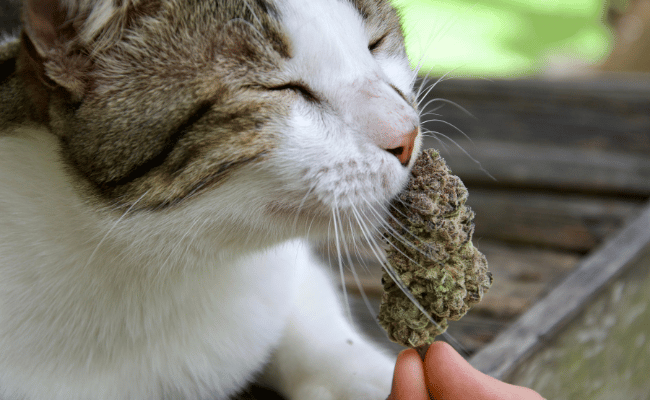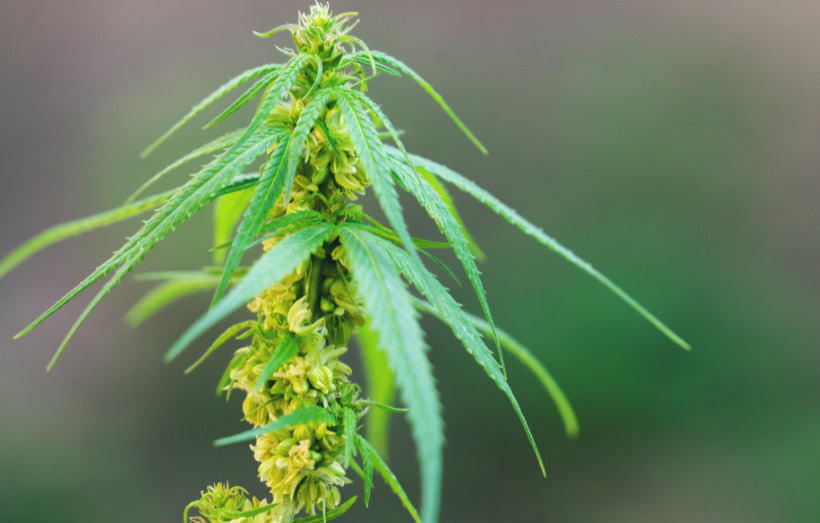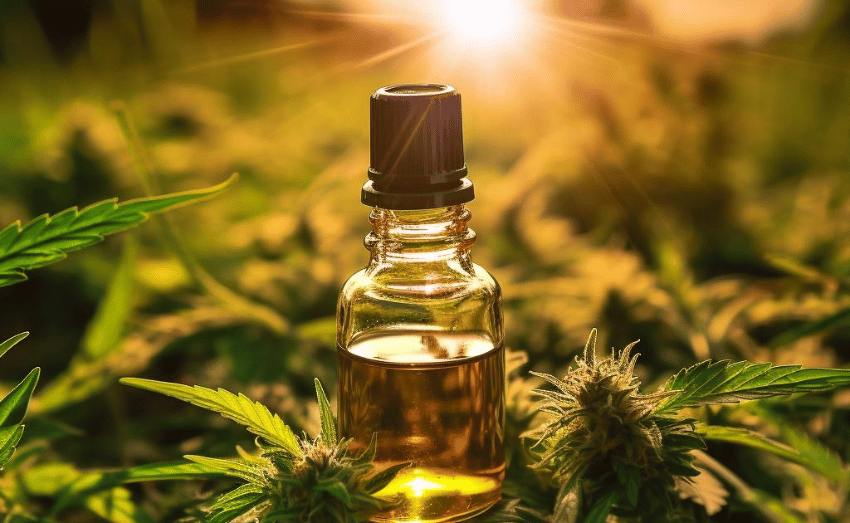The smell of weed around pets can have various effects on them.1 Tetrahydrocannabinol (THC) is the psychoactive component of cannabis that causes people to feel high, and if pets are exposed to it, it can have similar side effects.
In recent years, the conversation surrounding cannabis, or marijuana, has dramatically shifted with its legalization in various regions. While its psychoactive effects, chiefly due to Tetrahydrocannabinol (THC), are well understood in humans, the implications for pets, specifically the smell of weed, are less observed.
The Health Implications of Cannabis Smoke
THC, or Tetrahydrocannabinol, is the primary psychoactive component in cannabis.2 While in humans, it can induce feelings of euphoria or relaxation, among other effects, the physiological structure and responses of pets, particularly dogs, make them more susceptible to the compound’s side effects. Simply put, humans’ “feel high” experience doesn’t translate equivalently in pets.
Pets possess sensitive respiratory systems. Smoke, irrespective of its origin, can induce irritation in the lungs.
In particular instances, exposure to the “smell of weed around pets” can lead to respiratory ailments, eliciting symptoms like coughing or even aggravating pre-existing conditions such as asthma.3
Can Weed Smoke Harm Dogs?
Like how smoke can be bothersome for humans, it’s the same or even worse for our pets. Pets have very sensitive noses and lungs. When they are around smoke, it can bother them a lot. It’s not just a one-time thing; if they breathe in smoke often, it can make existing breathing problems worse or even cause new issues.
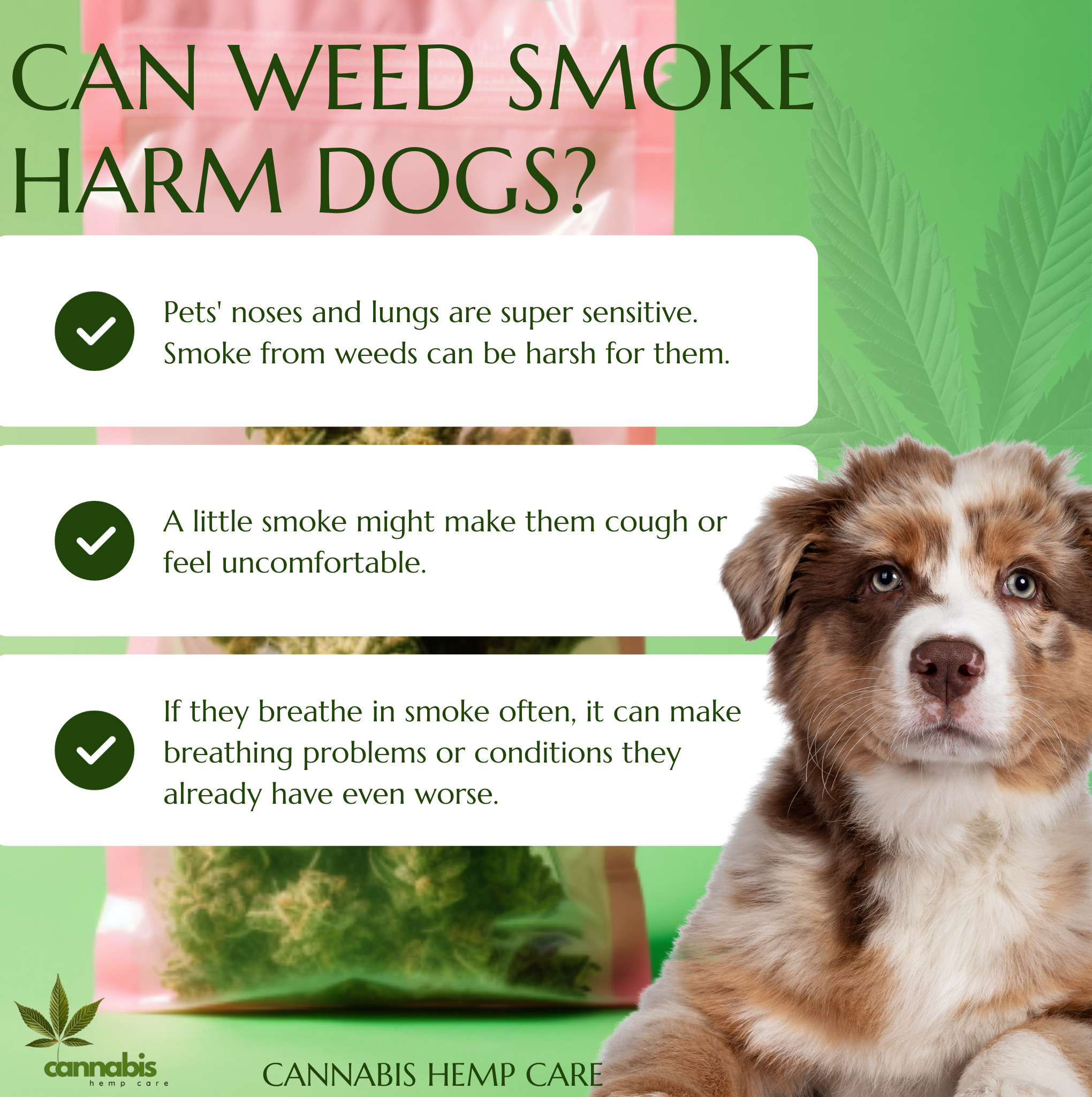
- Pets’ noses and lungs are super sensitive. Smoke from weeds can be harsh for them.
- A little smoke might make them cough or feel uncomfortable.
- If they breathe in smoke often, it can make breathing problems or conditions they already have even worse.
If you don’t want to be stuck in a smoky room all the time, your pet probably doesn’t either. Keep the air clear for their little lungs!
To answer this question:
Yes, the “smell of weed around pets is bad.” Pets, particularly dogs, have remarkably sensitive respiratory systems. Their proximity to smoke doesn’t merely result in a momentary irritation. Prolonged exposure can exacerbate pre-existing conditions such as asthma, induce coughs, and in more grave situations, lead to respiratory distress.

Clinical Symptoms of Weed Intoxication in Pets
When pets, especially dogs, inadvertently consume or inhale marijuana, their reactions are not similar to human experiences. Here’s what might happen to them:
1. Depression: Your pet might seem sad or tired, not wanting to play or move much.
2. Ataxia: Your pet could be wobbly like they can’t walk straight or keep falling over.
3. Mydriasis: You might notice their eyes look different, with the dark part (pupil) being much bigger than usual.
4. Bradycardia: Their heart might beat slower than it should.
5. Hypothermia: They could feel cold, showing their body temperature has dropped.
6. Urinary Incontinence: This is a fancy way of saying your pet might pee without realizing it.
If you’re around weed or smoking it, ensure it’s away from your pets. They can react badly, and it’s better to keep them safe!
Immediate Actions if Suspected Intoxication:
If one suspects their pet has been exposed to marijuana, immediate action is required.
- Contact your veterinarian: Their expertise is indispensable in such scenarios. While “vets don’t give a crap whether you smoke weed,” their priority is your pet’s well-being.
- Provide Complete Information: Transparency about possible exposure levels and any products involved can equip the vet with a better understanding, making treatment more effective.4
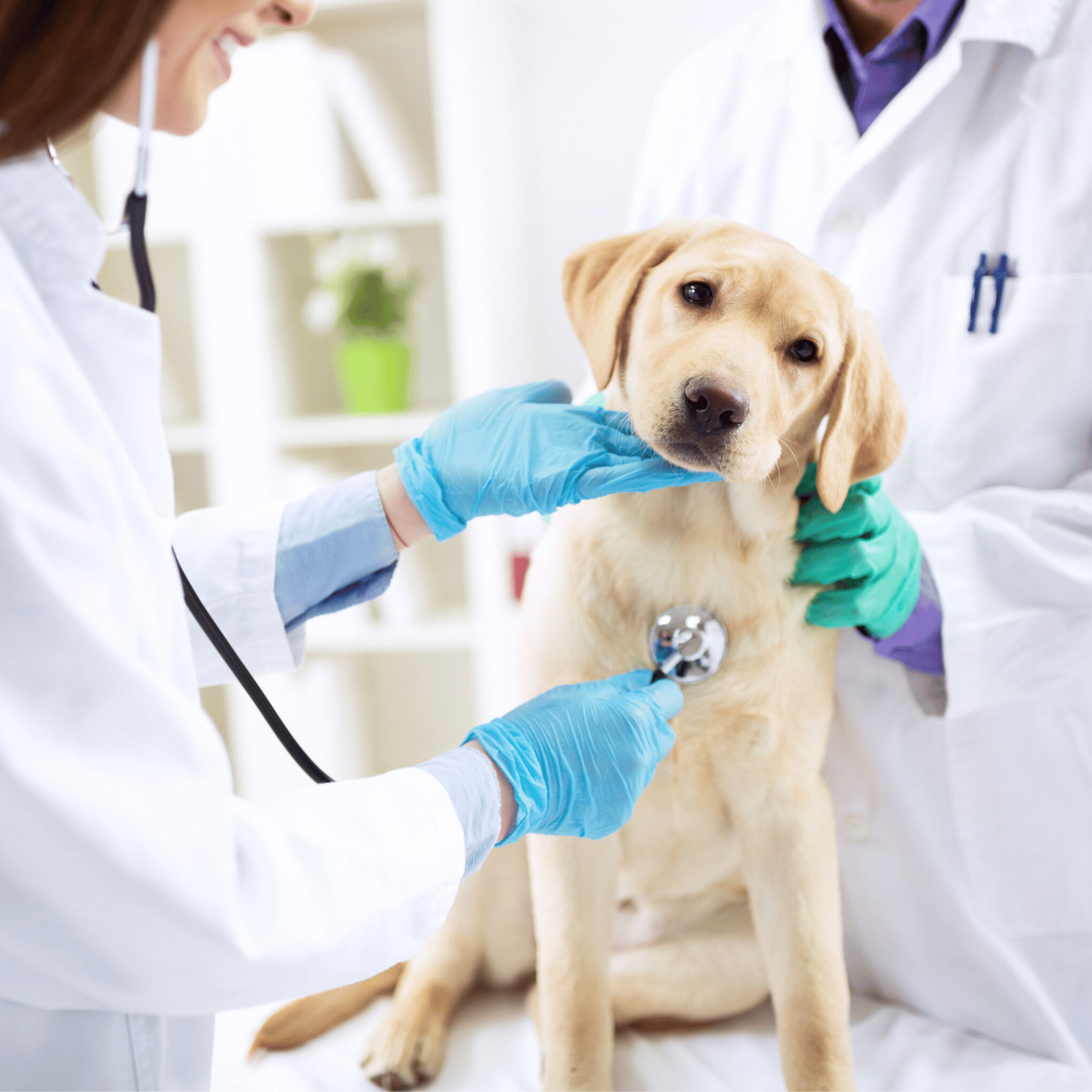
Protecting Your Pets from Marijuana Exposure To Ensure Their Safety
It’s essential to understand the importance of safeguarding our pets from the effects of marijuana. Just as you would keep certain foods or chemicals out of their reach, the same precautionary measures should apply to cannabis.
- Restrict Access:
- Marijuana and its products should be stored in lockable cabinets or containers that are out of reach for pets.
- Be particularly cautious with edible marijuana products, as pets could be easily attracted to them.
- Marijuana and its products should be stored in lockable cabinets or containers that are out of reach for pets.
- Ventilation:
- If marijuana is being smoked indoors, ensure rooms are well-ventilated to disperse smoke, reducing the chances of inhalation by pets.5
- Consider using air purifiers to maintain clean air.
- If marijuana is being smoked indoors, ensure rooms are well-ventilated to disperse smoke, reducing the chances of inhalation by pets.5
- Create a Pet-Safe Zone:
- Have a separate area or room for your pets, especially when marijuana is used. This space should be well-ventilated and free from any marijuana smoke or residue.
- Have a separate area or room for your pets, especially when marijuana is used. This space should be well-ventilated and free from any marijuana smoke or residue.
- Education:
- Familiarize yourself and others in the household with the risks marijuana poses to pets.
- Familiarize yourself and others in the household with the risks marijuana poses to pets.
- Prompt Veterinary Care:
- In the event of accidental ingestion or exposure, seek veterinary care immediately.
- Keep emergency contact details for your vet readily accessible.
- In the event of accidental ingestion or exposure, seek veterinary care immediately.
- Alternative Consumption Methods:
- Consider using alternative methods of marijuana consumption that reduce the risk of exposure to pets, such as edibles or vaporizers.
- Consider using alternative methods of marijuana consumption that reduce the risk of exposure to pets, such as edibles or vaporizers.
- Proper Disposal:
- Dispose of marijuana butts, residues, and other waste in a secure trash can that pets can’t access.
- Dispose of marijuana butts, residues, and other waste in a secure trash can that pets can’t access.
- Awareness:
- Spread awareness among your friends and family about the potential hazards of marijuana exposure for pets.
- Spread awareness among your friends and family about the potential hazards of marijuana exposure for pets.
Keep your pets safe. Adopting a proactive approach to marijuana safety will ensure harmonious coexistence with our furry companions. Each precaution is a step closer to a safe and happy home for humans and pets alike.
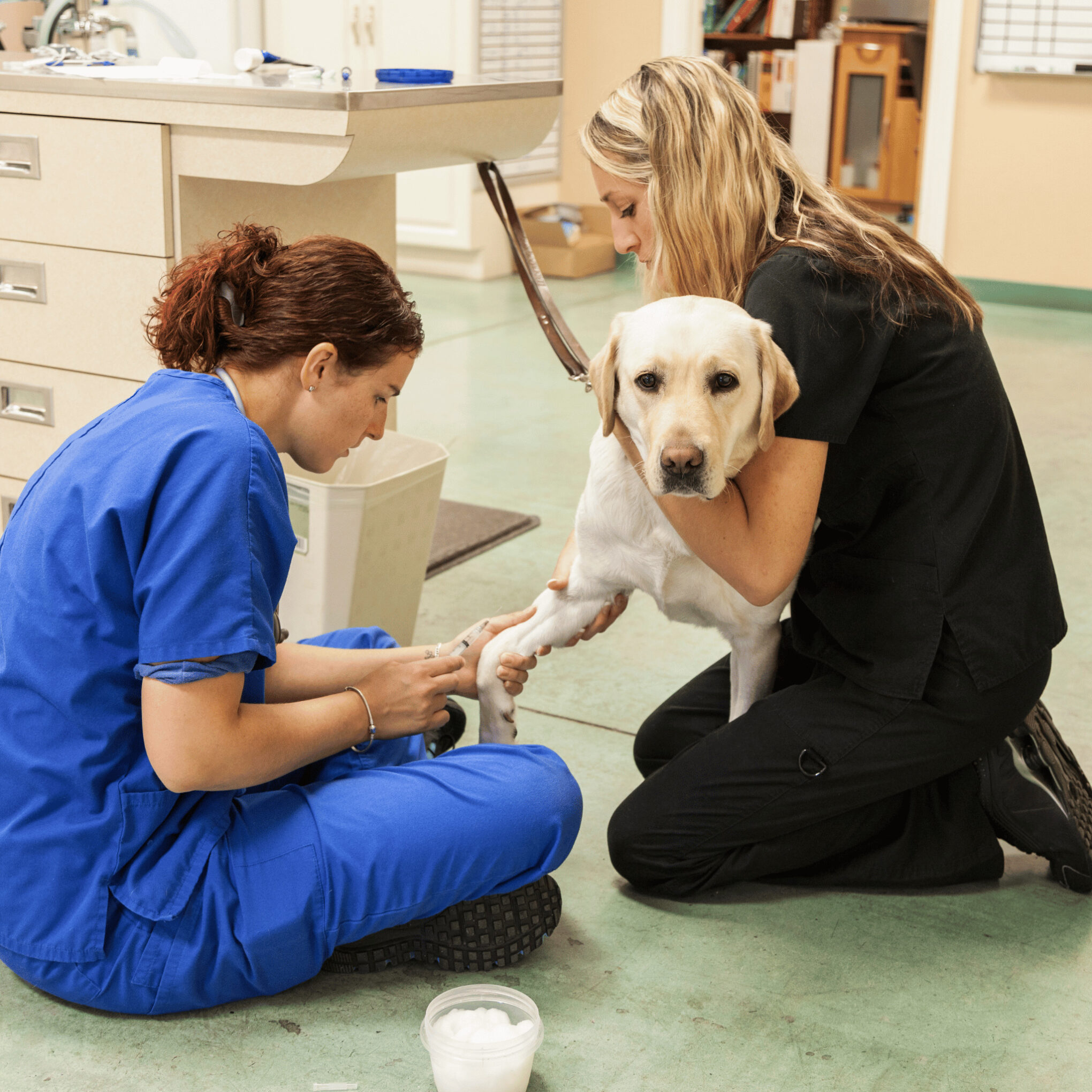
Conclusion
Pet owners have a responsibility to ensure the safety and well-being of their furry companions, regardless of the varied effects, legality, and usage norms of marijuana. It is crucial to understand the clinical implications of marijuana exposure to take care of our beloved pets. Being committed to our pets’ health requires awareness of potential dangers to keep them healthy and safe from unintended consequences of human choices.
FAQs
Sources
- “The Dangers of Marijuana and Dogs.” BC SPCA, spca.bc.ca/news/marijuana-dogs/. Accessed 30 Sept. 2023. ↩︎
- “Is Secondhand Weed Smoke Bad for Dogs & Cats?” EarthMed, 11 Oct. 2022, earthmed.com/blog/is-secondhand-weed-smoke-bad-for-dogs-cats. Accessed 30 Sept. 2023. ↩︎
- “Is Secondhand Cannabis Smoke Bad for Your Pets? – RQS Blog.” Royal Queen Seeds, www.royalqueenseeds.com/blog-is-secondhand-cannabis-smoke-bad-for-your-pets-n1163. Accessed 30 Sept. 2023. ↩︎
- Amissah, Richard Quansah, et al. “Prevalence and Characteristics of Cannabis-Induced Toxicoses in Pets: Results from a Survey of Veterinarians in North America.” PLOS ONE, vol. 17, no. 4, 30 Sept. 2023, p. e0261909, https://doi.org/10.1371/journal.pone.0261909. ↩︎
- Alt, Kimberly. “Dogs and Marijuana: Is It Toxic for Your Pup?” Canine Journal, 22 July 2016, www.caninejournal.com/dogs-and-marijuana/. Accessed 30 Sept. 2023. ↩︎


































